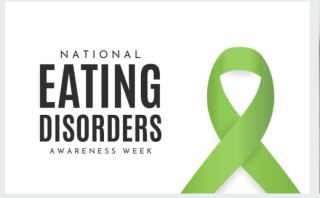
Source: © BojanMirkovic | iStock
I’m starting a new job in two weeks. It’s hybrid remote so I will be going into the office in midtown Manhattan two days a week. I’ve been working remotely since 2015, so I haven’t gone into an office in over eight years.
I had to take stock of my wardrobe. My uniform for the last eight-plus years has been leggings — primarily black ones — and business casual tops. I only have one closet, so I store my out-of-season clothes in a trunk in my building’s storage space in. When I started my first remote job, it was spring, so many of my winter clothes were put in storage there — and that’s where they have remained.
A couple of weeks ago, I dragged this trunk up to my apartment. I had no idea what kind of shape my clothes would be in when I opened it, but other than terribly wrinkled, I was pleasantly surprised.
They ranged in sized from very small to large, which accommodated my fluctuating body size over the years. I began the arduous process of trying just the pants on expecting to be triggered at almost every turn. (I didn’t bother trying on the skirts as I doubted I’d be wearing them.) My problem is that I don’t like clothes that fit; I like everything to be big, but office clothes are mean to fit, and I had to keep reminding myself of that. Some of them were too big and it was hard to let them go because they were beautiful and some of them were too small, and it was hard not to hold onto them with the hope that I will fit into them “one day.” I picked out the six pairs I liked the most and fit the best and sent them to the cleaners.
As my starting day draws closer the thoughts become more obsessive: “How will I look in these clothes?” “Will I be thin enough?” It’s amazing to me that although I’ve been recovered from anorexia for years, the thoughts still creep in at times of stress. The question is, why do I continue to torture myself in this way?

Source: © Strelov | iStock
A study published in The Journal of nervous and mental illness in 2006 found that women who had recovered from anorexia nervosa (AN) behaviorally but not cognitively scored in the direction expected from the subjects on all 12 measures of symptomatology and personality characteristics underlying AN in this study. (Those 12 measures included body dissatisfaction, disordered eating attitudes and behaviors, drive for thinness, general symptomology, personality variables underlying AN endorsement of the thin ideal, concern for appropriateness, drive for success, fear of failure, harm avoidance, obsessiveness, perfectionism, self-esteem.)
One constant reminder of the anorexia is the physical consequences I live with every day. I recently saw a neurologist for a seemingly unrelated neurological issue, but she had the opportunity to review all of my past and current head and neck scans. She commented that the degenerative disease of my spine and neck in the C5, C6 and C7 level was among the worst she has ever seen in someone my age. And believe me, I feel it every day. She suggested I see a neurosurgeon.
And there is the loss of all my teeth. Please, everyone: Take care of your teeth. Dentures are not a substitute. I lost all my teeth at age 55, not from purging by vomiting, which I never did, but from the extreme bone loss due to severe and prolonged malnutrition.
I was diagnosed with anorexia at 26 after an incompetent psychiatrist prescribed a stimulant rather than the antidepressant he told me he was prescribing. The stimulant numbed my appetite, and I lost a third of my body weight in six months and faced my first psychiatric hospitalization. A lifetime anorexic was born.
Please don’t start. And if you find yourself falling down that rabbit hole, get help fast. Anorexia is an insidious disease and gets entrenched quickly. It’s a cunning illness and a deadly one. You may feel as though you are in control, but this is only the illusion of control. AN is in control, and she is not your friend.
To find a therapist, visit the Psychology Today Therapy Directory.

